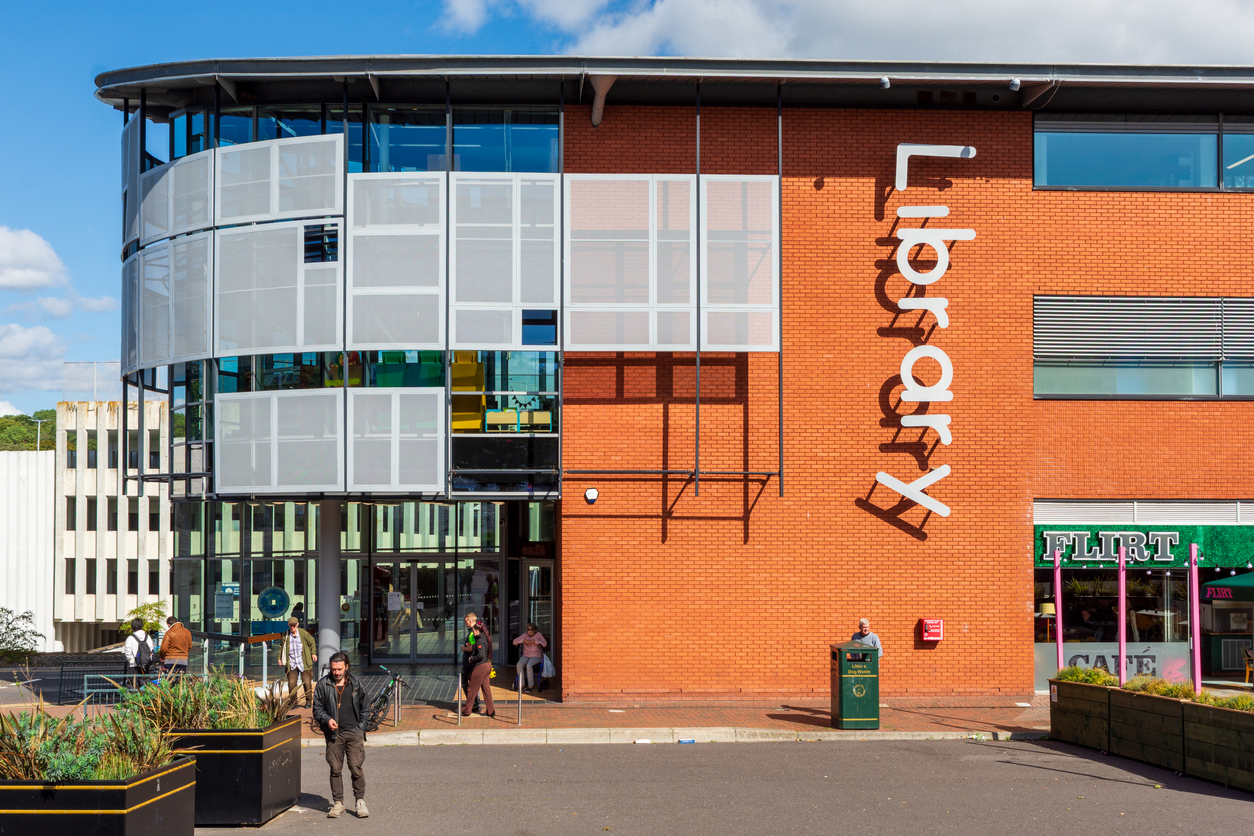Defining the “Relevance Narrative” in Library Media Coverage
“Are libraries relevant?” If you are reading this, you likely see the answer as an obvious yes. Why then, does the media keep attempting to force the issue? In my opinion, one reason is that when speaking to stakeholders and the media library workers so often begin on the defensive. When we validate the premise that libraries and librarians must immediately do something different (presumably, something “new”) to avoid disappearing, we are effectively starting from a point of diminished value. Articles pairing libraries and library workers with words like “struggle,” “worry,” “reinventing,” and “obsolete,” do us a disservice, even when the articles are ultimately positive about libraries, as is often the case. A perfect example is a Spectrum News 1 report that started “With the advent of the internet, libraries have almost become obsolete,” followed immediately by a glowing profile of school librarian Ashley Case. This phenomenon, in which the status (loosely defined as currency, utility, and value) of libraries is portrayed as being at such a low point that they must fight for their very survival, has become so prevalent in media coverage of libraries that I’ve given it a name: the relevance narrative.
I’m not certain exactly when the relevance narrative originated, but I suspect it has been around in some form throughout the existence of public libraries. While possible prior culprits could have been collections or services that did not reflect the needs of communities, the main underpinning of the narrative over the last twenty-five years or so sees anything digital as its bugaboo. Interestingly, this premise and the assumptions that emerge from it (that libraries are technologically backward, for instance) are rarely evidence-based — they cite no statistics, contain no survey of library infrastructure, and make mention of no library initiatives. Moreover, they tend to be blind both temporally and spatially, ignoring decades of dynamic technological change at both their local library and the library two towns over.
Yet, despite this narrow focus, the relevance narrative is invariably all-encompassing, referring to libraries in general, not a library in particular. An amusing example of this comes from the March 16, 1999 edition of the Daily Herald (Gurnee, Grayslake Neighbor) where in an article describing two candidates running for the library board, one candidate opined that “…libraries must find ways to stay relevant.”¹ Immediately beneath this is another article about a library system less than 10 miles away promoting a “Meet the Internet for Kids” class, as well as preschool storytime with both morning and evening time slots². It seems, then, that in the search for relevance, one need not look far.
Equally notable in describing the relevance narrative is its ahistorical nature. In the Spectrum News 1 piece mentioned above, there is a small but remarkable discrepancy between the article text and video reportage. In the video, reporter Tanya McRae includes the word “now” in the report’s second sentence: “…many people don’t realize how important librarians now are in getting our kids through school.” While this turn-of-phrase would usually go unnoticed, within the context of the relevance narrative, it demonstrates a pattern best described as an undue weight given to the now. This is aptly presented by Maria Popova of brainpickings.org in her 2013 Copyblogger interview as “Our presentism bias – anchored in the belief that if it isn’t at the top of Google, it doesn’t matter, and if it isn’t Googleable at all, it doesn’t exist – perpetuates our arrogance that no one has ever grappled with the issues we’re grappling with. Which of course is tragically untrue.” Along those lines, the question arises: How many headlines about libraries not being “just about books anymore” do they have to see before journalists realize that libraries haven’t just been about books since at least March 5th, 1977 when the Janesville Gazette³ reported on the upcoming launch of a toy collection at the local public library.
The
fact is that libraries, like all organizations in the public, private and
non-profit sectors, have always adapted to changes in society, including
technology. And while I’m sure some libraries have been more adept at handling
change than some others, framing public discourse around whether libraries as a
whole are relevant starts all libraries at a disadvantage. Simply put:
“Are libraries relevant?” is never the right question to ask and the
formulaic message “We are doing X program in order to stay relevant”
is rarely (if ever) a good justification for an initiative. Instead of
accepting the relevance narrative, begin with or redirect to a more winsome
perspective such as pride in our public service; that libraries and library
workers continue to do good and important work for their communities in
traditional as well as new and exciting ways.
References
¹ Aucoin, L. (1999, March 16). Candidate sees change in library’s near future. Daily Herald (Gurnee, Grayslake Neighbor), p. 5. Retrieved from Newspaper Archive. Accessed 2019-01-04. URL: https://access-newspaperarchive-com.ezproxy.lapl.org/us/illinois/arlington-heights/daily-herald-suburban-chicago/1999/03-16/page-395
² Kids can surf the internet by learning using search engines (1999, March 16). Daily Herald (Gurnee, Grayslake Neighbor), p. 5. Retrieved from Newspaper Archive. Accessed 2019-01-04. URL: https://access-newspaperarchive-com.ezproxy.lapl.org/us/illinois/arlington-heights/daily-herald-suburban-chicago/1999/03-16/page-395
³ Library Set To Go on Children’s Project. (1977, March 5). Janesville Gazette, p. 2. Retrieved from Newspaper Archive. Accessed 2019-01-04. URL: https://access-newspaperarchive-com.ezproxy.lapl.org/us/wisconsin/janesville/janesville-gazette/1977/03-05/page-2
Tags: are libraries relevant, public libraries relevance, relevance narrative public libraries










